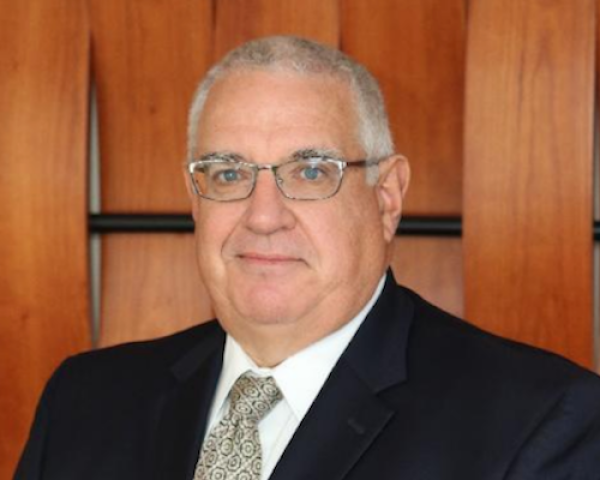Across the country, the Great Resignation has seen professionals leaving their jobs and moving on for several reasons, including the COVID-19 pandemic, unsatisfactory or uninspiring working conditions, limited opportunities for growth and more. Just this March, a record 4.5 million people quit their jobs, leaving businesses with significant deficiencies in their workforces.
As we all know, concern as to how to attract the next crop of professionals is nothing new for the insurance industry. According to Insurance News Net, a quarter of the insurance industry is currently over the age of 55. We’ve faced a talent issue for several years and grappled with the best ways to tackle the challenge. Now, as the industry faces the looming threat of mass retirements from industry professionals and a challenging labor market to break into, it’s time to get down to brass tacks. Maybe the solution is simpler than we think.
What the Industry is Doing Differently
Recently, the insurance industry has taken several different steps to address its talent deficit. For starters, we have seen growth in apprenticeship programs. These programs are designed to bring in nontraditional talent from a wide variety of backgrounds. Innovative programs like these aid in the recruitment of a variety of candidates, from parents returning to the workforce to high school students, to people from diverse geographic cultural and economic backgrounds, students with varying academic specializations and more. This hands-on experience gives them a taste of working in the industry and has proven valuable in showcasing the strength and variety of opportunities available within an insurance career.
At other businesses, we have seen the emergence of employee resource groups (ERGs). Serving as a tool for companies to show appreciation for their staff, ERGs create a safe environment for employees across backgrounds to share their experience working in the industry and learn from each other’s time at their companies.
These measures and others have certainly moved our industry forward in terms of addressing the talent gap. At Pennsylvania Lumbermens Mutual Insurance Company (PLM), we are not afraid to think outside the box, but we also know that in addition to these new methods, more traditional methods of recruiting and retaining can continue to produce happy employees and good work product – provided companies invest the right resources into them. We have found great success in recent years providing prospective and current staff with the resources they need to develop careers in insurance that make them feel valued, appreciated, challenged and as if they are making a difference.
A Focus on Education and Development
For longstanding industry professionals, education is key to keeping them engaged and inspired. Here, an emphasis on continuing education and developing varied skillsets can go a long way.
At PLM, we require our employees to participate in continuing education. Career development is essential to building out our business and to the individual professional success of our team members. We encourage our employees to regularly participate in educational courses that further their talents and continue to grow their interest in the work. We also reward them financially for their efforts toward continuing education.
Additionally, we try to expose our staff members to several disciplines of the business so they can find what truly fits their skillsets and passion where possible. For example, we have people on our team who started in underwriting, switched to IT and then found their home working on our marketing team. We want our employees to feel they aren’t boxed into their current roles and have the chance to explore, try new experiences and expand their skills.
Companies across the industry can improve their retention efforts with a renewed dedication to professional development. Staff members want to feel valued by their organization and want to believe they are making progress in their own careers. Working with them to develop their skillsets can be a valuable step forward.
See Also: Keys to Finding and Nurturing Talent
Work-Study Initiatives and College Internships
Insurance continues to have a reputation issue among younger audiences as an industry with limited intrigue, but by reaching them early, leaders can showcase not only the value of a career in the industry, but the value of insurance to society. They likely don’t realize that insurance is a key factor in keeping our global economy humming – providing opportunity for new retail, professional services, the creation of new life-saving medicines and more. Through education opportunities and practical experience, insurers can not only correct misconceptions about the industry, but paint the industry as the cog in our global economic engine that it is.
At PLM, we partner with the Cristo Rey Philadelphia High School, which has a work-study program that has allowed us to provide students with a clear, comprehensive introduction to both the insurance industry and the wood niche that we insure. Once a week, we work with their students to introduce them to the basics of an insurance career and show them how rewarding a career in insurance can be. Our partnership gives these students a glimpse at the inner workings of insurance, while also providing them with practical skills for their continued education.
A more common tool used by the industry is of course college internships. College students looking to try new work and discover career paths can take advantage of internship programs to see if they fit in insurance. Often, we see college internships at companies in insurance or in other industries that only offer interns basic experience. Their work is often limited to administrative tasks, research projects and other hands-off responsibilities that don’t showcase the value of working in insurance.
College internships should provide practical work experience and give interns a chance to really see what their day-to-day work would be like. They should also have the opportunity to try out different parts of the business and find what roles they truly enjoy. This can be helpful for the employer as well, as they could have a new hire in a few months who’s already been partially onboarded and exposed to the business, the team and company culture. At PLM, we’ve hired around five interns each year.
Show That You Care
Several recent studies have demonstrated that both new recruits and current industry professionals want to work in an environment where they feel they can make a difference. Part of the industry’s reputation problem has been a perception that a career in insurance is simply profit-oriented. What our industry has struggled to convey over the years is that insurance is an industry rooted in giving back.
In times of crisis, our industry provides critical protection and support to those in need. When a disaster occurs, insurance professionals are almost immediately on-site assessing damages and seeing what we can do to recoup what people have lost.
The insurance industry actually has a big heart. A 2020 study from McKinsey found from 2015 to 2019, the industry donated around $560 million to $600 million to support those enduring hardships from food insecurity to homelessness and more.
This dedication needs to be showcased to the next generation of talent. At PLM, we look to do this by folding volunteering and giving back into the fabric of our company culture. With our headquarters in Philadelphia, PLM leads several initiatives in the Philadelphia community throughout the year working with major nonprofits including the ASPCA, Ronald McDonald House, MANNA, Cradles to Crayons and more. We also match employee donations dollar-for-dollar to foster a culture of giving. Most notably, we annually host a month-long United Way campaign, which gathers our entire team for volunteering and giving initiatives. Last year, we had 100% participation and contributed a total of $205,411 for programs in the Philadelphia community. Through initiatives like these, we can highlight the industry’s dedication to giving and showcase our commitment to social good.
Moving Forward
Like many industries today, insurance does have a talent problem. But our industry is working to combat this growing concern and has been for years. By continuing to innovate and come up with new programs to attract talent from a variety of backgrounds, as well as a renewed focus on tried-and-true measures with a new investment of resources, we’re up to the task.
As an industry, we need to build on education and development programs, make a stronger commitment to recruitment initiatives and earlier outreach, and demonstrate our industry’s rich history of giving back and desire to engage our team members and our business efforts in initiatives for social good. This way, our industry can not only survive this talent crisis, but lead the way for others now seeing talent shortages of their own.







